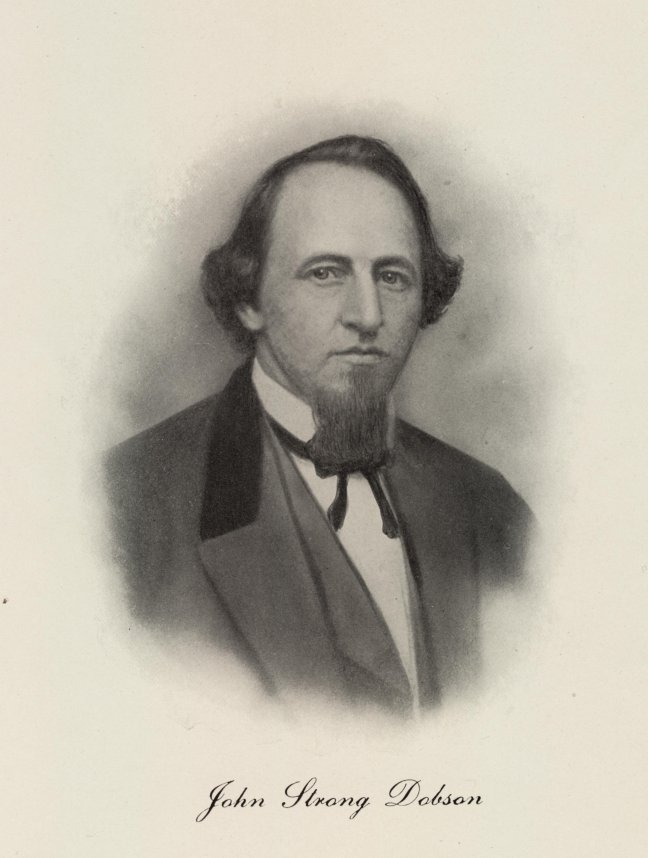

John Strong Dobson was the son of Peter Dobson by his second wife, Sophia Strong Dobson, and was born in Vernon, May 18, 1817. He was educated at the local schoolhouse near his home, as well as Wesleyan Academy, in Wilbraham, MA., and at the Academy in East Hartford, CT. Upon completing his education, he entered the employ of the Tankerhoosen Cotton Factory, which comprised of two mills was owned by his father, located on the Tankerhoosen River on the west side of present day Dobson Road. He continued in the service of that company until its reorganization as the Centerville Company. Upon his reaching the age of majority, a share of the responsibility of its management was devolved on him. On the 8th of January, 1839, he became the owner of twenty-nine shares of the capital stock in that business.
He continued to operate the business with his father until the Civil War, at which time the rising cost of cotton made it unprofitable to operate the mills. It was decided that the mills would be closed until the the cost of cotton would again allow a profit to be made. At the close of the war, cotton prices dropped, but because of the advanced age of his father, Peter Dobson, it was decided that rather than reopen the mills, they would close up the business and sell off the properties. On March 27, 1866, the mill to the west, being the larger one, was sold to John S. Dobson, Alfred R. Goodrich, J. Woodbridge White and William H. White, and operated as Dobson, White & Company.
On that same day the east mill was also sold to Rienzi B. Parker, who was John Dobson's son-in law, being married to Emma Strong Dobson, John Dobson's daughter by his wife, Julia (White) Dobson.
Due to poor health, John Dobson retired from the management of that business in the Fall of 1879. Dobson, White & Company closed and the business was sold to Elish E. Hilliard. He did not engage in any business after the closing of Dobson, White & Company, and died from apoplexy on December 15, 1882 at age 65.
Quoted from his obituaty in the “Hartford Times":
“He was a man of great honesty and decision of character, and of unusual mental power, and inherited some of his father’s characteristics, and became a marked and respected man in the community. In politics, he was a very pronounced Democrat. Though he never sought office, it was owing to the circumstance that he lived in a town which, for a long period of years, was the most thoroughly anti-democratic town in Connecticut, that he did not appear oftener in such elective offices as representative in the State Legislature. He was, however, elected to various and responsible town-offices notwithstanding his party politics, and, in 1852, was elected to the Connecticut Senate from the old Twenty-first District, - an eloquent compliment to his ability and integrity and the esteem in which he was personally held.”